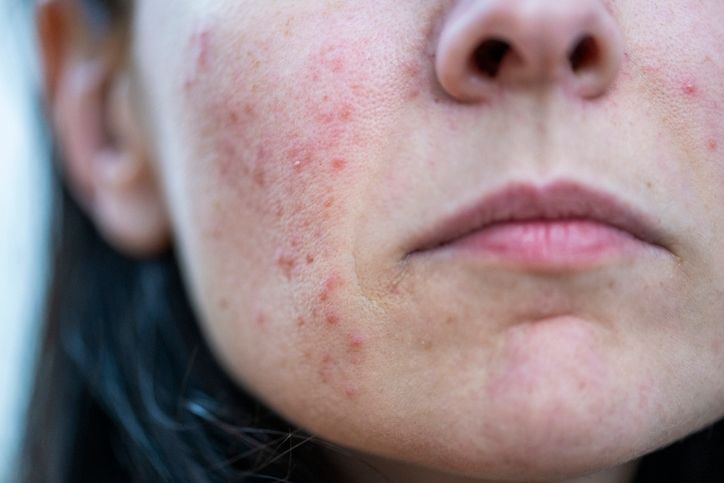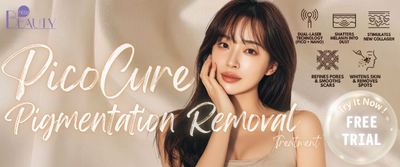
Author: Natalie Ng|Updated: 21 May 2025
Using vitamin C with your daily SPF is a simple way to give your skin extra love. Vitamin C helps brighten your skin tone, fade dark spots, and fight free radical damage, while sunscreen protects against UV rays and sun damage. Together, they make a great team—helping your skin stay healthy, even, and protected. When you layer a few drops of vitamin C serum under a broad spectrum sunscreen, you’re not just protecting against UV damage, you’re also helping your skin fight signs of aging like wrinkles and fine lines. Adding vitamin C to your skincare routine is a small change that makes a big difference for your skin. If you’re curious about why this combo works so well and how it helps keep your skin glowing and strong, keep reading.

Better UV Protection and Free Radical Defense
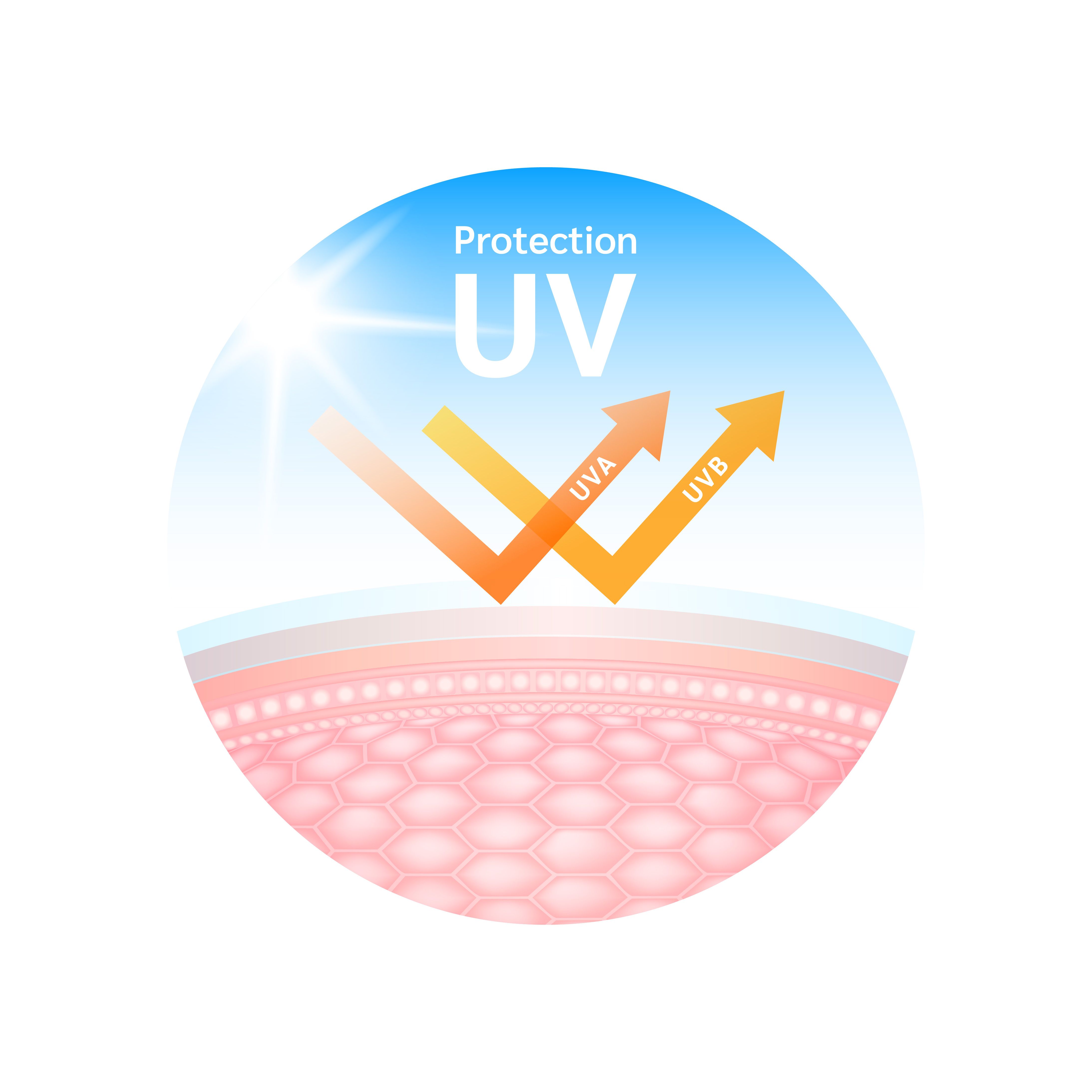
Vitamin C and sunscreen work together to protect your skin
Vitamin C and sunscreen work together to help protect your skin from sun exposure, UV rays, and free radicals. Vitamin C is a powerhouse antioxidant that helps neutralize free radical damage, while sunscreen forms a shield that blocks UV radiation. When you apply a vitamin C serum before your broad spectrum sunscreen, they combine to give stronger protection than either product can provide alone.
Best way to apply vitamin C and sunscreen for stronger skin protection
For the best results, apply a few drops of vitamin C serum to clean, dry skin in the morning. Let it absorb for a few minutes, then follow with a broad spectrum sunscreen that has at least SPF 30. This routine builds a stronger barrier against UV damage and environmental damage while helping to prevent sun sensitivity, wrinkles, and skin damage. By using both vitamin C and sunscreen, you help your skin stay healthy, even, and protected throughout the day.

Boosted Collagen Production for Firmer Skin
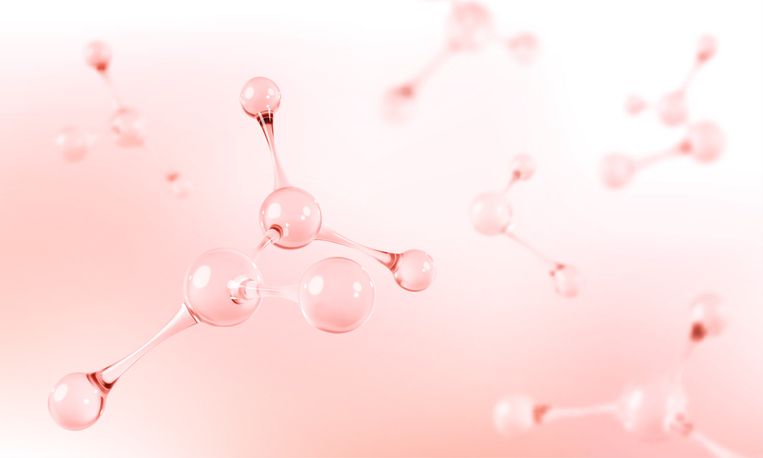
Why combining vitamin C and sunscreen helps support collagen
Pairing vitamin C with sunscreen doesn’t just protect your skin from sun exposure and UV rays – it also helps your skin stay strong by supporting collagen production. Vitamin C is a powerhouse antioxidant that encourages your skin to make more collagen, while sunscreen helps prevent UV damage that can break collagen down. When used together, this combo works to keep your skin feeling firmer, smoother, and more elastic over time.
Collagen benefits at different ages
Vitamin C and sunscreen are helpful for all skin types, but the benefits of using them together can change as you age:
| Age Group | Collagen Benefits | Recommended Usage |
|---|---|---|
| 20s-30s | Prevention | Morning application of vitamin C and sunscreen |
| 40s-50s | Maintenance | Morning and evening vitamin C, plus sunscreen every morning |
| 60s+ | Restoration | Vitamin C every 4-6 hours, sunscreen during the day |
Applying a few drops of vitamin C serum before your broad spectrum sunscreen each morning helps your skin stay firm and resilient. For the best results, let your vitamin C serum absorb for about a minute before adding sunscreen. Over time, this routine helps improve skin texture, reduce the appearance of wrinkles, and maintain a healthy, youthful-looking skin tone.
Read More
Book Now to Experience
PicoCure Pigmentation Removal Treatment
1 Minute Self-Registration
Date should not be before minimal date

Prevention of Sun-Induced Dark Spots
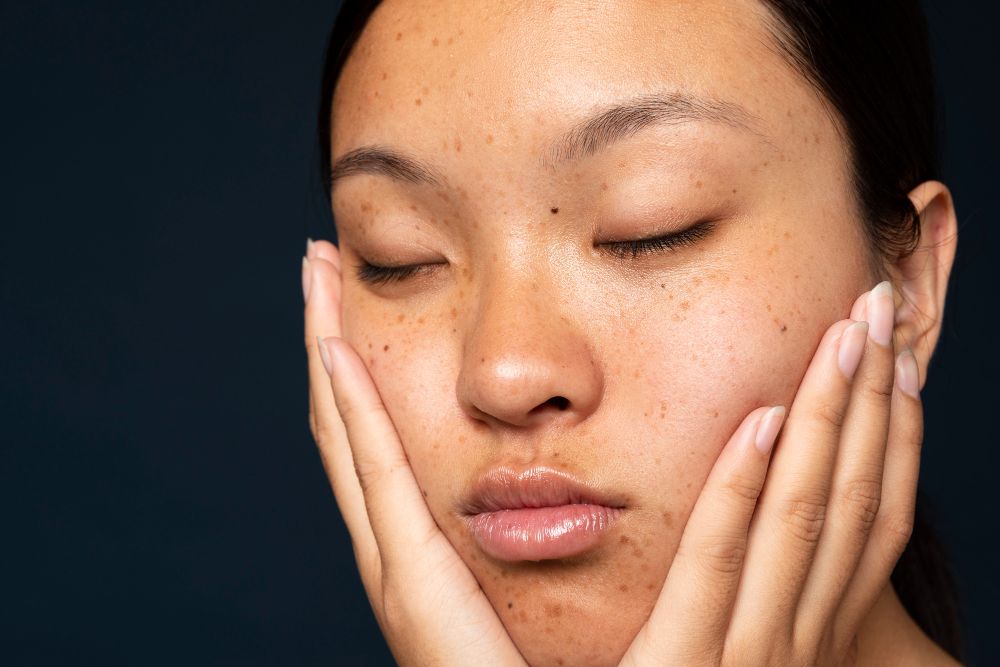
Vitamin C and sunscreen help stop dark spots before they form
Vitamin C and sunscreen work as a team to help prevent sun-induced dark spots from forming on your skin. Vitamin C helps block the process that leads to excess melanin, while sunscreen protects your skin from the UV rays that trigger dark spots in the first place. Using both together helps keep your skin tone even and prevents new dark spots from appearing after sun exposure.
How to apply for the best results
Start your morning routine by applying a few drops of vitamin C serum on clean skin, then wait a few minutes before applying a broad spectrum sunscreen. This routine helps protect against new dark spots and stops existing ones from getting darker. The antioxidants in vitamin C help break down hyperpigmentation, while sunscreen ensures your skin stays safe from sun exposure.
Stay consistent and apply this combination daily, even when it’s cloudy, as UV rays can still reach your skin. This habit helps protect your skin from long-term sun damage and keeps it looking clear and healthy.

Brightening and Evening of Skin Tone

Vitamin C and sunscreen help even out skin tone
Vitamin C is known for brightening the skin and helping fade dark spots. When paired with sunscreen, it works to prevent new discoloration from forming while slowly helping fade existing dark spots. This combination helps promote a more even skin tone over time, especially when applied every morning.
Regular use gives gradual improvement
Vitamin C targets the melanin that causes hyperpigmentation, while sunscreen blocks UV rays that can darken these spots. The key is regular application—apply a few drops of vitamin C serum first, then follow with a broad spectrum sunscreen with at least SPF 30. Over time, you’ll notice a brighter, more even skin tone as dark spots gradually become less visible.
Book Now to Experience
PicoCure Pigmentation Removal Treatment
1 Minute Self-Registration
Date should not be before minimal date

Reduced Signs of Photoaging
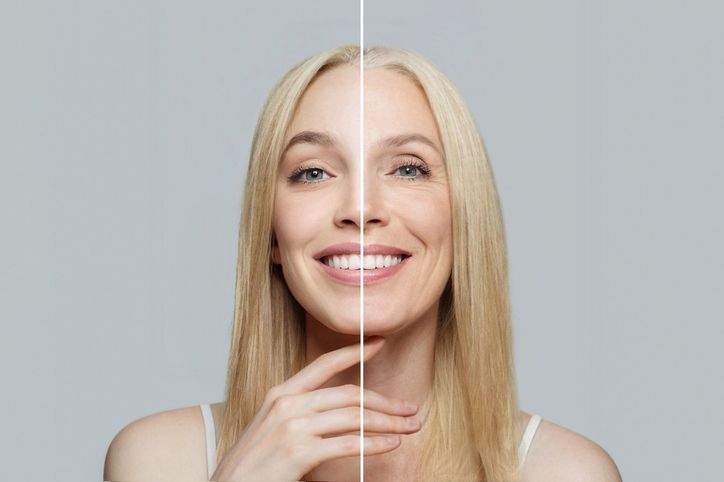
Vitamin C and sunscreen work together to fight photoaging
Vitamin C helps support collagen production, while sunscreen protects against UV rays that break down collagen and damage skin. By using them together, you give your skin the extra support it needs to stay firm and smooth. This pairing can help reduce the look of fine lines and wrinkles caused by long-term sun exposure.
Application tips for best results
Start your day by applying a vitamin C serum with at least 10% concentration. Let it absorb for about a minute, then apply a broad spectrum sunscreen with at least SPF 30. This routine helps maintain your skin’s structure and keeps it resilient against daily sun exposure. With regular use, you’ll notice firmer skin and fewer visible signs of photoaging over time.

Prevention of Sun-Induced Dark Spots
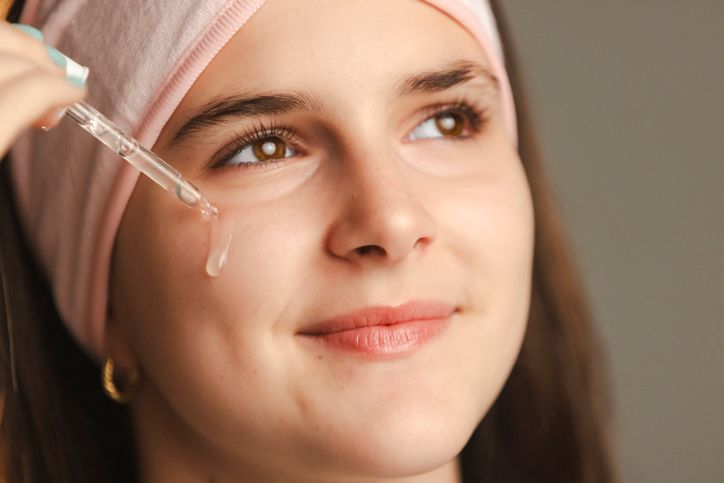
How vitamin C and sunscreen work together to prevent dark spots
Vitamin C helps slow down melanin production, while sunscreen blocks the UV rays that can trigger dark spots. When used together every morning, they create a defense system that stops dark spots before they form. This is especially important for those who experience hyperpigmentation or uneven skin tone after sun exposure.
Layering vitamin C and sunscreen correctly
Start with a few drops of vitamin C serum on clean, dry skin. Wait a few minutes for it to absorb, then apply your broad spectrum sunscreen. This pairing doesn’t just protect against new dark spots – vitamin C also helps fade existing ones over time. Daily use keeps your skin tone looking clear and balanced.
Book Now to Experience
PicoCure Pigmentation Removal Treatment
1 Minute Self-Registration
Date should not be before minimal date

Improved Skin Firmness

How vitamin C and sunscreen help keep your skin firm
Vitamin C encourages your skin to produce more collagen, which is the protein that helps keep your skin firm, elastic, and smooth. As we age, collagen levels drop naturally, and UV rays from sun exposure can speed up that process. Sunscreen helps protect against this damage by blocking UV rays, while vitamin C works to build collagen and support the skin’s structure. When you use these two together, you help your skin stay stronger and more resistant to the sagging and loss of firmness that often happens with age and sun exposure.
Best way to apply for firmer skin
In the morning, apply 3–4 drops of vitamin C serum to clean, dry skin. Wait about a minute to let the serum absorb fully. Then, apply your broad spectrum sunscreen with at least SPF 30 to protect your skin from UV rays throughout the day. Reapply sunscreen every two hours if you’re outside for long periods.
With regular use, you’ll notice your skin feeling more resilient. Fine lines may soften, and your skin’s overall texture can improve, leaving it feeling smoother and firmer over time.

Strengthened Skin Barrier Function
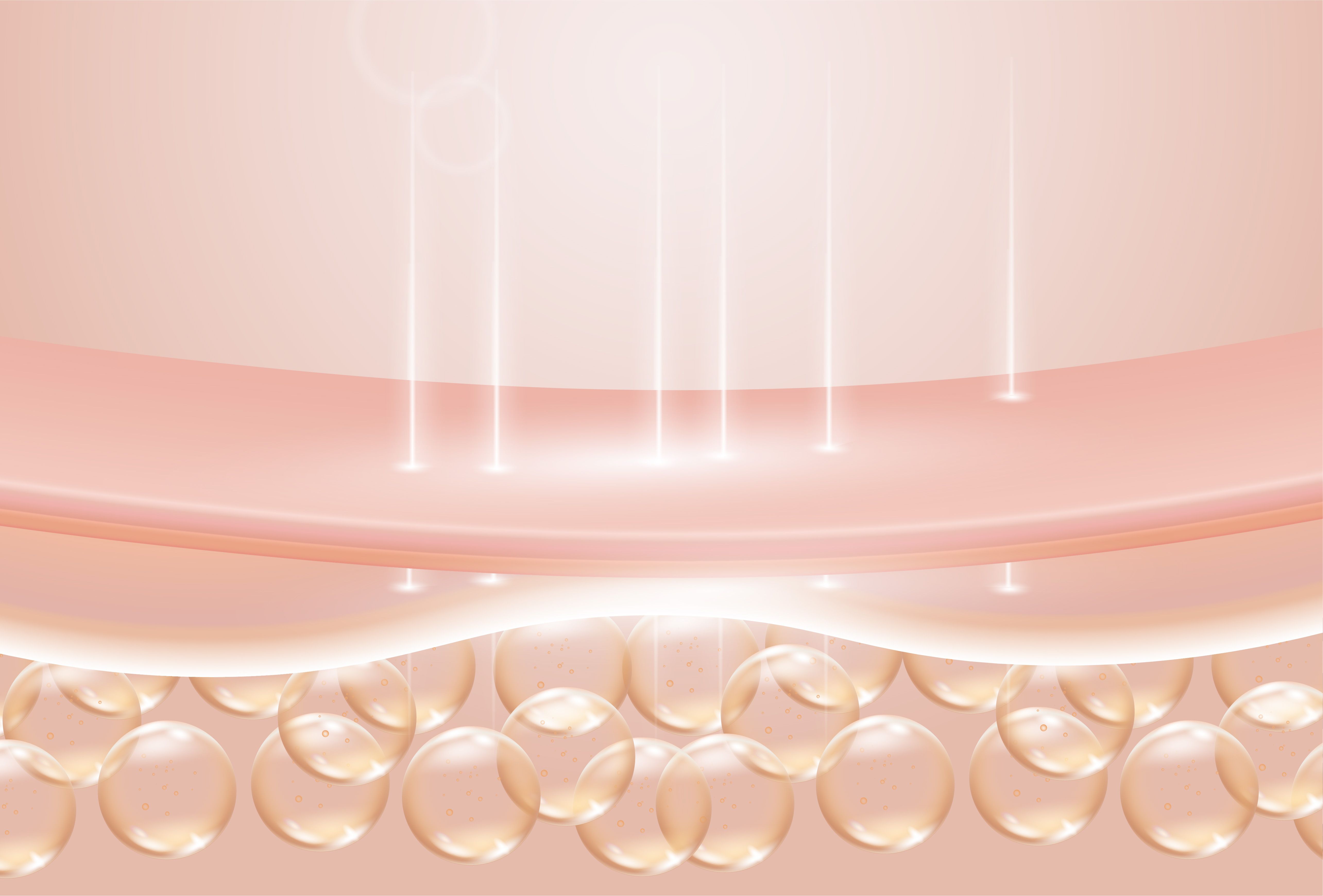
Impact of vitamin C and sunscreen on the skin barrier
Vitamin C and sunscreen do not directly strengthen the skin’s protective barrier. The skin barrier is the outermost layer of the skin, responsible for keeping moisture in and harmful substances out. While vitamin C helps fight free radical damage and sunscreen blocks UV rays, they don’t actively rebuild or reinforce the skin barrier itself.
Ingredients that help improve the skin barrier
For a stronger skin barrier, focus on using ingredients like ceramides, niacinamide, and hyaluronic acid. These ingredients help restore the skin’s natural moisture balance and repair damage over time.
Application tips for supporting skin health
Use a vitamin C serum in the morning to help protect the skin from environmental stressors, then layer a broad spectrum sunscreen to block UV rays. This routine supports overall skin health but should be paired with products designed to strengthen the skin barrier when that’s your goal.
Book Now to Experience
PicoCure Pigmentation Removal Treatment
1 Minute Self-Registration
Date should not be before minimal date

Extended Sunscreen Effectiveness
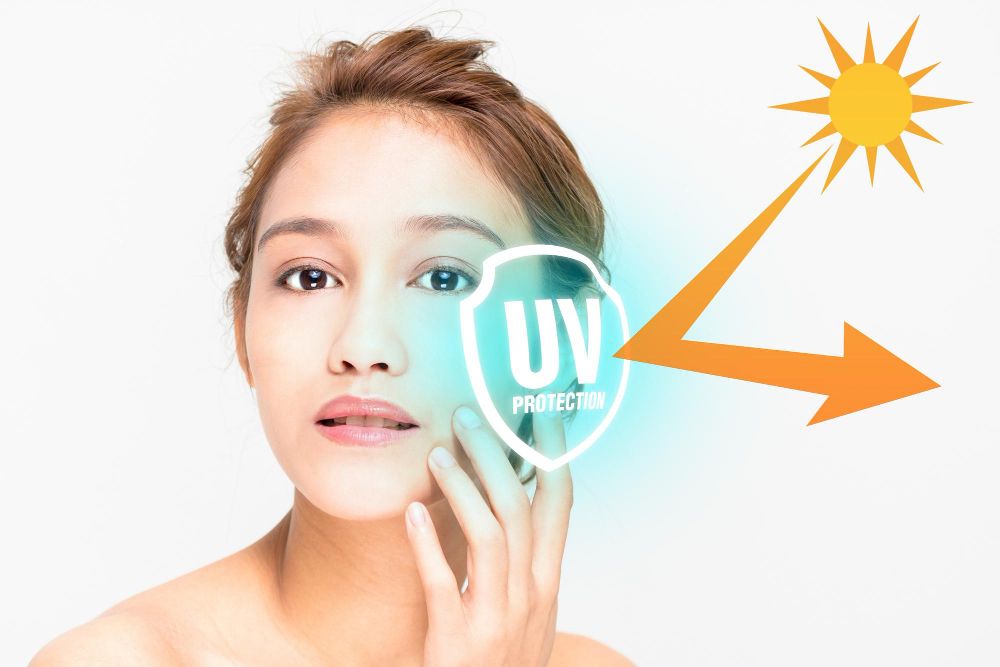
Vitamin C’s role in UV protection
Vitamin C helps protect the skin by fighting free radicals, but it does not increase the SPF level of sunscreen or extend its protective time. While vitamin C is a helpful antioxidant, it doesn’t make sunscreen last longer throughout the day or give you extra hours of protection against UV rays.
Best approach for long-lasting sun protection
For strong sun protection, apply your vitamin C serum in the morning, wait about a minute, and follow with a broad spectrum sunscreen with at least SPF 30. Reapply sunscreen every two hours when spending time outdoors. This is the most effective way to prevent UV damage, dark spots, and signs of aging.
Vitamin C and sunscreen work side by side but serve different purposes. Think of vitamin C as your skin’s internal defender, protecting against free radical damage, and sunscreen as your external shield against UV rays. Both are important, but neither replaces the other’s function.

Improved Hydration and Moisture Retention

Vitamin C and sunscreen’s impact on hydration
Many believe that combining vitamin C with sunscreen helps keep skin hydrated, but this isn’t the case. While both ingredients are important for skin health, they don’t directly improve your skin’s ability to hold onto moisture. Vitamin C protects against free radical damage, and sunscreen shields skin from UV rays, but they aren’t designed to lock in hydration.
Best way to keep skin hydrated
If your goal is to improve skin hydration, include ingredients like hyaluronic acid, ceramides, and glycerin in your skincare routine. These ingredients help strengthen the skin’s moisture barrier, ensuring water stays in the skin throughout the day.
Use vitamin C and sunscreen every morning for overall protection, but rely on a hydrating serum and moisturizer to improve moisture levels. This layered approach helps keep your skin healthy, hydrated, and protected from environmental damage.
Book Now to Experience
PicoCure Pigmentation Removal Treatment
1 Minute Self-Registration
Date should not be before minimal date

Long-Term Prevention of Sun Damage
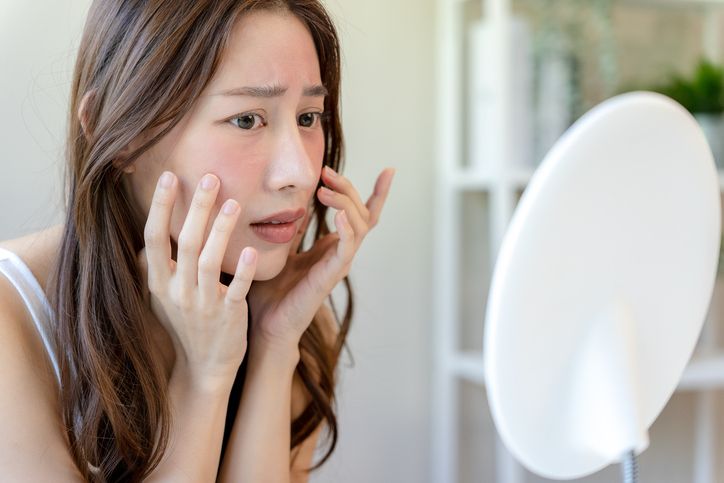
Why vitamin C and sunscreen help protect skin long term
Using vitamin C and sunscreen together creates a routine that supports your skin’s long-term health. Vitamin C helps defend against free radicals, which are unstable molecules that can damage skin cells over time. These free radicals come from UV rays, pollution, and environmental damage. Sunscreen works as a physical shield, blocking UV radiation that can cause skin damage, dark spots, and even skin cancer.
Applying both products daily helps your skin stay protected from the harmful effects of UV exposure and environmental stress. Vitamin C works from within to neutralize free radical damage, while sunscreen deflects UV rays before they can harm your skin. This combination doesn’t change the SPF value of your sunscreen or make it last longer, but it strengthens your overall skin health by addressing different aspects of sun damage.
Build a routine for long-term protection
For lasting results, apply a few drops of vitamin C serum each morning to clean skin, let it absorb for about a minute, then follow with a broad spectrum sunscreen of SPF 30 or higher. Reapply sunscreen every two hours when exposed to UV rays or after swimming or sweating. Don’t skip sunscreen on cloudy days—UV rays can still cause skin damage, even when the sun isn’t shining.
With regular use, this routine helps reduce the risk of fine lines, wrinkles, dark spots, and more serious skin conditions like skin cancer. Think of it as an essential daily habit to protect your skin’s long-term health.

Protective Clothing and Sun-Safe Habits
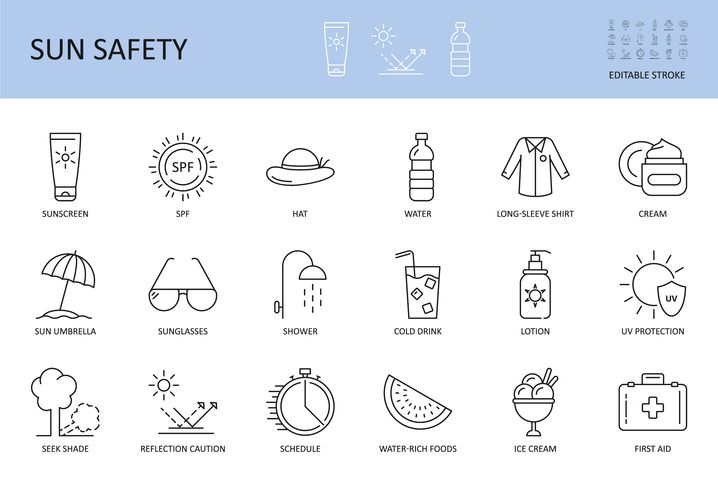
Importance of protective clothing for skin protection
While vitamin C and sunscreen are key parts of your skincare routine, protective clothing is an extra step that can make a big difference in sun safety. Clothing with a tight weave, like long-sleeved shirts, wide-brimmed hats, and UV-blocking sunglasses, shields your skin from UV rays. This physical barrier helps reduce sun sensitivity and protects against skin conditions like dark spots, sun damage, and early signs of aging such as wrinkles and loss of firmness.
How to build a complete sun protection plan
To give your skin the strongest defense, combine vitamin C, sunscreen, and protective clothing in your daily routine. After cleansing in the morning, apply a few drops of vitamin C serum, wait for it to absorb, then layer on a broad spectrum sunscreen of at least SPF 30. When you go outdoors, wear protective clothing to cover your skin, along with a wide-brimmed hat to protect your face and sunglasses to shield the delicate skin around your eyes from UV rays.
This combination helps minimize skin damage from sun exposure, slows down the appearance of fine lines and dark spots, and supports healthy skin tone and texture. It’s also helpful to seek shade during peak sun hours, usually between 10 am and 4 pm, and avoid tanning beds, which expose the skin to harmful UVA rays.
By making these sun-safe habits part of your daily routine, you’re giving your skin the best chance to stay healthy, strong, and radiant for years to come.

Boost Your Skincare Routine with PicoCure Pigmentation Removal Treatment
How PicoCure works alongside vitamin C and sunscreen
Using vitamin C and sunscreen daily is an essential part of protecting your skin from UV damage, free radicals, and sun sensitivity. But sometimes, stubborn pigmentation, dark spots, and uneven skin tone still need extra care. That’s where PicoCure Pigmentation Removal Treatment can help.
This non-invasive laser treatment uses a combination of picosecond and nanosecond laser energy at multiple wavelengths—1064nm, 650nm, 585nm, and 532nm—to target pigmentation deep in the skin. The laser breaks down pigment particles into smaller fragments, which are then naturally cleared by the body’s metabolic process. PicoCure doesn’t just treat surface-level pigmentation; it reaches multiple skin layers to tackle sun spots, age spots, acne scars, and melasma at their source.
How PicoCure supports and enhances your skincare routine
PicoCure works hand-in-hand with your daily vitamin C serum and broad spectrum sunscreen routine by treating existing sun damage that topical products may not fully address. While vitamin C helps protect your skin from free radical damage and promotes collagen production, and sunscreen shields your skin from UV rays, PicoCure provides a solution for stubborn pigmentation that won’t fade on its own.
The treatment also stimulates collagen production, helping to firm the skin, reduce the look of fine lines, and improve skin tone. Combined with the protective benefits of vitamin C and SPF, PicoCure helps create smoother, clearer, and brighter skin over time.
Benefits of PicoCure Pigmentation Removal Treatment
• Targets deep and surface-level pigmentation for clear, even skin
• Supports collagen production for firmer, more elastic skin
• Reduces the appearance of dark spots, acne scars, and melasma
• Safe for most skin types, including darker skin tones
• Non-invasive treatment with no significant downtime
• Helps maintain skin health and prevent further damage from sun exposure
Adding PicoCure to your skincare routine gives you a complete solution for tackling both existing skin damage and ongoing protection.
Ready to take your skin to the next level? Book your PicoCure Pigmentation Removal Treatment today and experience the power of advanced skin care!
New Beauty's PicoCure Pigmentation Removal TreatmentBook Now to Experience
PicoCure Pigmentation Removal Treatment
1 Minute Self-Registration
Date should not be before minimal date
FAQ
Can I use vitamin C serum after a laser pigmentation removal treatment?
Yes, you can use vitamin C serum after laser pigmentation treatments like PicoCure, but it’s best to wait a few days for your skin to recover. Vitamin C helps protect the skin from free radicals and supports collagen production, but applying it too soon after treatment might cause irritation. Always follow post-treatment care advice and consult a skincare professional before using active ingredients like vitamin C.
Does sunscreen prevent all types of sun damage on its own?
Sunscreen is an important part of your daily skincare routine, but it doesn’t block 100 percent of UV rays or prevent all types of sun damage. Broad spectrum sunscreen protects against both UVA and UVB rays, but some UV radiation can still penetrate the skin. That’s why it’s best to combine sunscreen with other skin protection methods like vitamin C, protective clothing, and treatments such as PicoCure to reduce the risk of skin damage and long-term skin conditions.
Can PicoCure help with skin texture and large pores?
Yes, PicoCure Pigmentation Removal Treatment helps improve skin texture and reduce large pores by stimulating collagen production. While PicoCure is mainly used for pigmentation removal, the laser energy also encourages new collagen growth. This can help smooth out skin texture, reduce the appearance of fine lines, and make skin feel firmer and more elastic over time.
Should I use vitamin C if I have sun sensitivity?
Vitamin C can be a helpful addition for people with sun sensitivity, as it helps protect the skin from free radical damage caused by UV rays. However, it doesn’t replace sunscreen or protective clothing. If you have sensitive skin, start with a lower concentration of vitamin C serum and apply it in the morning before sunscreen. This combination can help reduce the risk of sun damage and support overall skin health.
What is the difference between UVA rays and UVB rays in terms of skin protection?
UVA rays reach deeper into the skin and contribute to skin aging, wrinkles, and long-term damage, while UVB rays mainly cause sunburn and can increase the risk of skin cancer. A broad spectrum sunscreen protects against both UVA and UVB rays, making it a key step in your skincare routine. Using vitamin C serum and treatments like PicoCure can further protect the skin from free radicals and environmental damage that sunscreen may not fully block.
Recommended Articles
COPYRIGHT© NEW BEAUTY MANAGEMENT LIMITED 2026. ALL RIGHT RESERVED.

